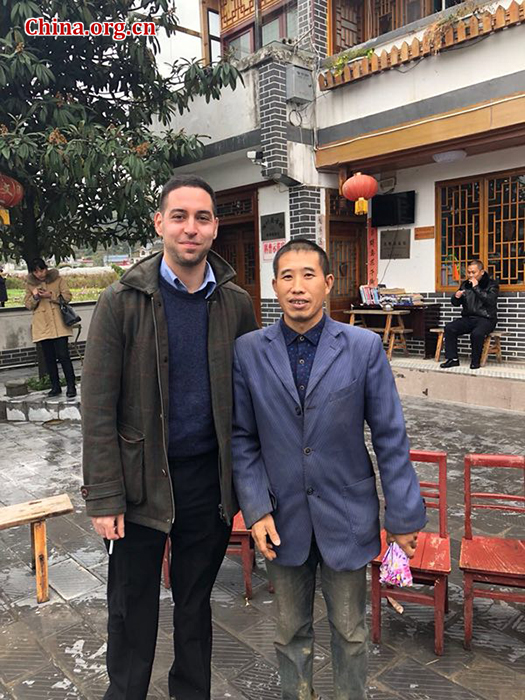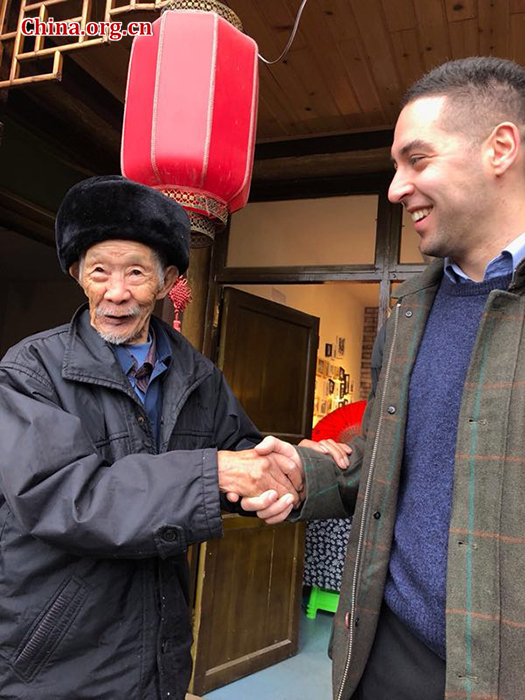Overcoming poverty in Guizhou
China.org.cn,November 27, 2017 Adjust font size:
 |
Local resident Shen Xiangjun poses for a picture after being interviewed by China.org.cn reporter Chris Georgiou in Gouba Village, Guizhou. [Photo/China.org.cn] |
Such policies have transformed the life of 40-year-old Shen Xiangjun. Although the family is burdened by the ill health of Shen's wife, both of his young sons are now attending primary school free of charge.
His farm is doing well, and with local government support he is now selling his products to Shanghai through an e-commerce platform.
A patriot, Shen wants his children to become police officers rather than work in his field. When asked what will happen to his farm as he gets older, he said he can hire others to work for him and remains confident of its future business potential.
"I'm quite happy with the money I earn. I can use it to expand my business and look after my wife," Shen said.
Targeted policies helped move 93 farmers from 29 of the village's households out of poverty in 2015. In 2016, 12 farmers from three households were able to do so.
Guizhou has also sought to capitalize on the increased incomes and living standards of China's middle class. For many in the country, material consumption is no longer enough; cultural enlightenment and a desire to escape the city have presented an opportunity for Guizhou to promote rural tourism in the province. Since 2014, Huamao village has received almost 1.3 million tourists, generating 135 million yuan in income.
 |
Ninety-five-year-old Peng Dengying recounts the many changes he has witnessed in Guizhou's Gouba village since he was a boy, when the Red Army stopped over during the Long March. [Photo/China.org.cn] |
Rural development in China may still have lessons to learn from analogous undertakings in the U.K., where government subsidies, protectionist policies, and an emphasis on capital such as machinery have benefited land-owning farmers. Land-rights issues are a complex area of reform in China, but public-private partnerships, land leasing, shared ownership and profit-sharing schemes are methods which can further incentivize rural residents to engage in commerce.
China has unique endowment factors, and reforms here are being based on local conditions. Guizhou is actively taking on these challenges with public and private partnerships, investment, education and targeted policies to develop their human resources. It is a model that should be replicated across the country.